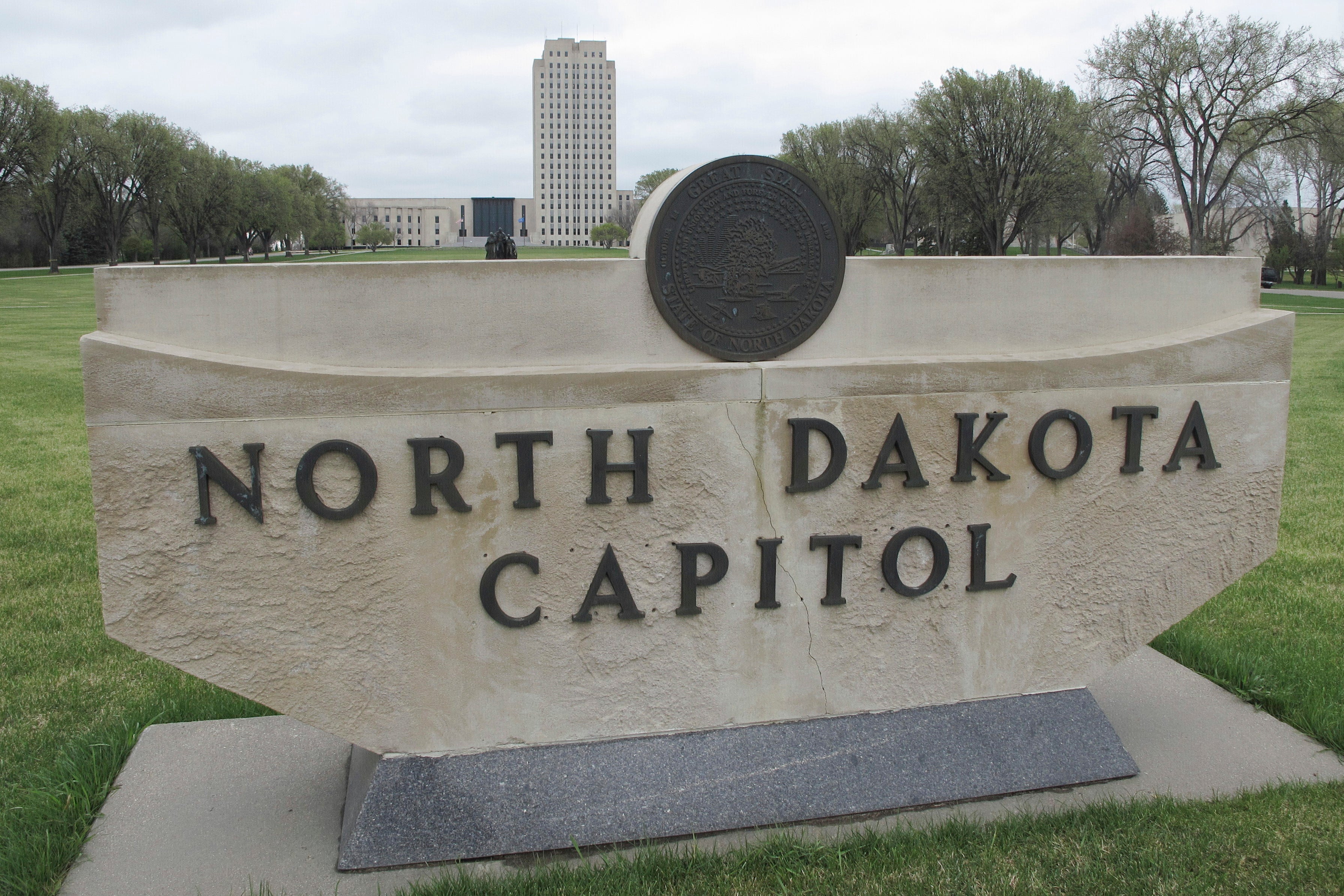North Dakota advances suite of restrictions on trans rights
The North Dakota Senate passed a series of bills on Monday that would restrict transgender people’s rights in sports, health care, schools, workplaces and daily life

Your support helps us to tell the story
From reproductive rights to climate change to Big Tech, The Independent is on the ground when the story is developing. Whether it's investigating the financials of Elon Musk's pro-Trump PAC or producing our latest documentary, 'The A Word', which shines a light on the American women fighting for reproductive rights, we know how important it is to parse out the facts from the messaging.
At such a critical moment in US history, we need reporters on the ground. Your donation allows us to keep sending journalists to speak to both sides of the story.
The Independent is trusted by Americans across the entire political spectrum. And unlike many other quality news outlets, we choose not to lock Americans out of our reporting and analysis with paywalls. We believe quality journalism should be available to everyone, paid for by those who can afford it.
Your support makes all the difference.The North Dakota Senate has passed a series of bills that would restrict transgender people's rights in sports, health care, schools, workplaces and daily life.
Doctors would be prohibited from providing gender-affirming care to people under 18, and transgender males wouldn't be allowed to join female sports teams in K-12 and college, under bills that passed with veto-proof majorities in the Senate and House. If the governor vetoes the bills, then the Senate and House could override his decision and turn those bills into law.
Democratic Sen. Ryan Braunberger, of Fargo, said on the Senate floor that he knew he was gay since he was a boy, and laws restricting LGBTQ freedoms had contributed to his decision to attempt suicide.
“I was lucky to survive that suicide attempt — to be here — but many others have not and will not,” Braunberger said. If the bills pass, then “kids like me across the state will feel like the world is against them. They’ll eventually feel like they can no longer go on.”
Others who spoke in opposition to the bills said the measures were often confusing, difficult to enforce, discriminatory and in violation of federal laws. But supporters said the bills would prevent children from making decisions about their identity that they would later regret, and they would bolster the rights of people who do not identify as transgender.
Republican Sen. Janne Myrdal, of Edinburg, spoke in support of the bills on the Senate floor and said more than a dozen states have passed what she called “women’s sports laws” that restrict transgender people from participating in sports.
“None of these states have lost federal funds. None of them have lost the ability to host NCAA tournaments,” Myrdal said. “Claims that North Dakota risks being punished are simply not evidenced.”
The Senate also revived an effort to stop teachers and government employees from acknowledging the personal pronouns a transgender student or colleague uses.
Originally, the pronoun restrictions were in a controversial bill that Republican Gov. Doug Burgum vetoed last month. The Senate had quickly overruled his decision, but the House fell a few votes short and the bill died.
But on Monday, senators took language from the dead pronoun bill and stuck it into a bathroom bill that would restrict transgender students' access to restrooms. The newly amended bill must get approved by the House and governor to become law — or, if the House approves the bill with a veto-proof majority, the governor's approval wouldn't be needed.
The Senate amended other transgender bills, which are returning to the House for approval. One would restrict transgender people's access to bathrooms, locker rooms and showers in college dorms, correctional facilities and penitentiaries. Another would restrict a transgender person's ability to change their gender identity on their birth record.
Republican lawmakers across the United States have pursued several hundred measures aimed at rolling back LGBTQ rights this year.
At least 11 states have enacted laws restricting or banning gender-affirming care for minors, but federal judges have blocked them in two states. Around two dozen other states are considering bills to restrict or ban care.
___
Trisha Ahmed is a corps member for the Associated Press/Report for America Statehouse News Initiative. Report for America is a nonprofit national service program that places journalists in local newsrooms to report on undercovered issues.